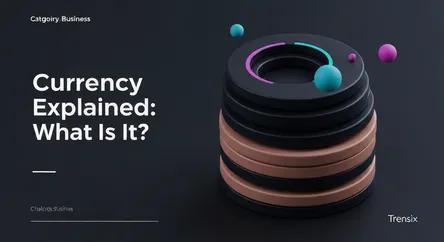Business
Currency Explained: What Is It?

Discover what currency is, from traditional banknotes to digital forms, and understand its crucial role in global trade and personal finance.
What is it?
Currency is a standardized form of money, including coins and paper notes, that is issued by a government and circulated within an economy. Used as a medium of exchange for goods and services, it's the basis of trade. Modern currency is typically 'fiat money,' meaning it has value because the government guarantees it, not because it's backed by a physical commodity like gold. Its primary functions are to serve as a unit of account, a store of value, and a medium of exchange. In recent years, the definition has expanded to include digital currencies, which exist only in electronic form.
Why is it trending?
Discussions about currency are trending due to major global shifts. The rise of cryptocurrencies like Bitcoin has challenged traditional financial systems, prompting governments to explore Central Bank Digital Currencies (CBDCs). Furthermore, global inflation, geopolitical tensions, and volatile foreign exchange (forex) markets have put a spotlight on currency valuation and stability. Debates around the U.S. dollar's role as the world's reserve currency and the economic policies of central banks keep the topic highly relevant in financial news and public discourse.
How does it affect people?
Currency directly impacts everyone's financial life. It determines your purchasing power—how much you can buy with your money. Exchange rates affect the cost of imported goods, international travel, and foreign investments. When a currency's value fluctuates, it can either make foreign products cheaper or more expensive. Domestically, inflation can erode the value of savings, meaning the money you have today may buy less tomorrow. The stability of a nation's currency is fundamental to economic confidence, influencing everything from daily shopping to long-term retirement planning.